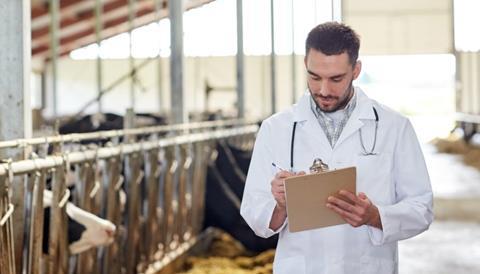The Scottish Association of Meat Wholesalers (SAMW) have called on Government to give the veterinary declaration guidelines top priority as it says time is running out for the new rules to be communicated to the industry.

In a blog post on its website, a SAMW spokesperson said: "Industry needs to know what Official Veterinarians in meat plants must have in order to sign the necessary export health certificates."
Non-assured livestock farmers will have to provide a declaration signed by a veterinarian from 13th December 2023 in order for their products to be eligible for export to the EU.
The spokesperson continued: "While the main problem is going to be with cattle from farms that are non-assured until the guidance is issued, and grey areas removed, we can’t be confident that there won’t be some disruption.
"This is all totally unnecessary and something of an insult to farmers and processors who are working hard to maintain exports in the face of an extremely challenging economic climate. The guidance being produced by Government needs to be shared with all in the supply chain so everyone knows what they need to do, and everyone can work together to sort out the grey areas."
The potential to affect the whole chain
The rules were originally intended to be introduced in 2022, but Government delayed them by 12 months. SAMW stresses that any delay signing these veterinary documents will affect not only a meat plant but everyone in the meat supply chain.
The Defra requirements coming into effect in December state that livestock farmers must undergo regular animal health checks conducted by qualified vets at least once a year. Vets will be required to visually assess the farm to confirm freedom of notifiable diseases, but no sampling or laboratory testing is required.
Farmers who are already part of an approved farm assurance scheme like Red Tractor and Quality Meat Scotland (QMS) already meet the requirements for a veterinary visit, so there is no need to supply additional veterinary declaration.
This story was originally published on a previous version of the Meat Management website and so there may be some missing images and formatting issues.















